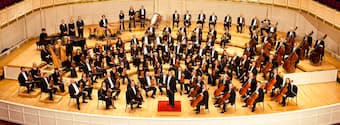
Chicago Symphony Orchestra, 2015
I have always enjoyed participating in team sports. Although I am naturally happy in my own company there are times when I want to be part of a team moving towards a shared goal and objective. Volleyball is my favorite sport, and since the game moves very fast you always have to think with a team perspective. And that’s one of the reasons why I just love music for symphony orchestra. While volleyball teams sport 6 players, a symphony orchestra often numbers close to 100 players. Can you imagine the amount of coordination and team spirit it takes to coordinate a musical performance?
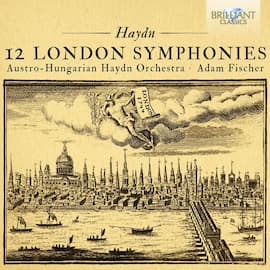
Haydn’s London Symphony
Some of the top masterpieces in classical music have been written for symphony orchestra. These compositions are generally called symphonies, and they got more and more popular because symphonic orchestras explosively increased in size. Strongly supported by the aristocracy, symphonies emerged with extraordinary intensity in the 18th century. Many of the most famous names in classical music composed symphonies, so let’s get started with a list of the 10 best Symphonies you don’t want to miss in your life, ever.
Haydn: Symphony No. 104 “London”
At the top of the class stands Joseph Haydn, who is commonly known as the “Father of the Symphony.” Haydn was one of the first composers to fully understand the dramatic and emotional potential of a symphony orchestra, and every one has some kind of story to tell. Haydn composed well over a 100 symphonies for specific people, players, actors or places, like his Symphony No. 104 nicknamed “London.”

Estates Theatre in Prague where the
Prague Symphony was premiered
Mozart: Symphony No. 38 “Prague”
Any list of the best symphonies would be incomplete without featuring the music of Wolfgang Amadeus Mozart. Scholars now think that he composed just over 50 symphonies, and over time he raised them to unsurpassed heights. His early symphonies are rather conventional, but as he was traveling around Europe he came in contact with different musical and national styles.
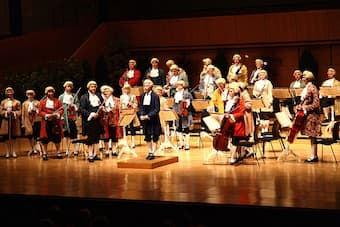
Vienna Mozart Orchestra
Mozart was the master of taking these different styles and blending them into marvelous symphonies of his own. And Mozart was also a master in his treatment of melody, and a master of orchestration. Mozart was no revolutionary in his symphonies, but he assimilated and transformed various influences into a uniquely personal idiom. Mozart just loved the city of Prague, and during a visit in 1787 he first performed his “Prague” Symphony. Representatively, it is one of many Mozart symphonies you don’t want to miss in your life, ever.
Beethoven: Symphony No. 6, Op. 68 “Pastoral”
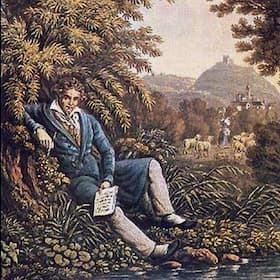
Beethoven in the Countryside
Ludwig van Beethoven wrote nine glorious and revolutionary symphonies that greatly changed the way we think about music. He came to Vienna as a pianist, but he quickly turned his attention towards the symphony. For him, the symphony became a powerful vehicle of self-expression, and Beethoven integrated a good bit of drama and psychology into these compositions as well. Each of the nine symphonies is a unique piece of art, and we are probably most familiar with his Symphonies No. 5 and No. 9. These particular symphonies seem a bit heavy around the edges, so my favorite is his Symphony No. 6 nicknamed “Pastoral.” He described that work as more an expression of feeling than a painting in music. Beethoven was a nature lover, and he liked nothing more than a walk in the woods. You can hear birdcalls, babbling brooks, shepherds and thunderstorms that transport you back into the countryside. In fact, Beethoven wrote the first environmental and green symphony, and for that very reason it is a symphony you don’t want to miss in your life, ever.
Ludwig van Beethoven: Symphony No. 6 in F Major, Op. 68, “Pastoral” (Bavarian State Orchestra; Carlos Kleiber, cond.)
Brahms: Symphony No. 3

Wiesbaden, where Brahms completed his Symphony No. 3
Talking about nature, Johannes Brahms did most of his composing during the warm summer months. After celebrating his 50th birthday, he decided to spend the summer of 1883 in a town on the Rhine River. He found a little studio looking towards the river and completed his 3rd Symphony in a matter of weeks. Clara Schumann wrote to him after playing through the symphony at the piano, “What harmonious mood pervades the whole! All the movements seem to be of one piece, one beat of the heart, each one a jewel.” Clara also heard “the mysterious charms of woods and forests in the first, with worshippers kneeling about the little forest shrine in the second movement, respectively.” It is Brahms’ most personal symphonic essay, filled with conflicts and warm resolutions, turbulence and gentle sentiments, desolation and geniality. Brahms looked back over his life and crafted a work that offers a compelling and highly revealing musical self-portrait. It is a symphonic masterpiece, and you really shouldn’t miss it.
Schubert: Symphony No. 8, “Unfinished”
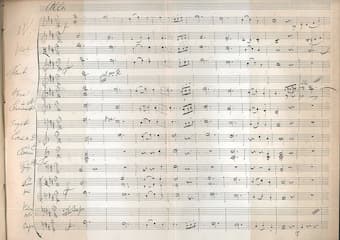
Schubert’s Symphony No. 8 in B minor
Franz Schubert came from a humble Viennese family. His childhood home was filled with music and the young Schubert was expected to become a schoolmaster, just like his father. But Schubert had other ideas. After he received the best musical education available, he made his name as a composer of works for domestic use. He specifically focused on Lieder, dances and smaller keyboard compositions. In the year 1815, for example, he composed 144 Lieder, 3 Singspiels and a multitude of smaller choral works. Schubert had an incredible lyric gift, and he also transferred his unforgettably melodies into the symphony real. Of his nine symphonies, only two have become part of the core symphonic repertory and are frequently performed. The Schubert Symphony you don’t want to miss in your life is his No. 8. Schubert only completed the first two movements, hence the nickname “The Unfinished.” It is widely considered the first truly Romantic symphony, and it is an undisputed masterwork.
Mendelssohn: Symphony No. 4 “Italian Symphony”

Johann Wolfgang von Goethe
The German writer and poet Johann Wolfgang von Goethe is known as the originator of the concept of World Literature. He traveled throughout the Italian peninsular for well over two years, and he recorded his impressions in a diary and wrote numerous letters to his friends and family. Once he had returned back home, he collected and edited his travel chronicles and published them as non-fiction under the title Italian Journey. It inspired countless artists to follow in Goethe’s footsteps and embark on similar pilgrimages to Italy. Among the enthusiastic followers was the composer Felix Mendelssohn who was deeply impressed by the natural beauty of the Italian countryside. He also wrote numerous letters but he also composed a Symphony subtitled “Italian Symphony.” It is one of the best and most cheerful symphonies in the entire literature, as the music bustles with the boundless musical energy and excitement of sunny Italy.
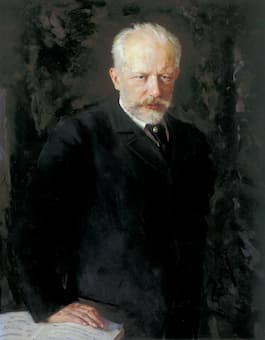
Pyotr Ilyich Tchaikovsky
Tchaikovsky: Symphony No. 6 “Pathétique”
Pyotr Ilyich Tchaikovsky’s died a mere nine days after conducting the premiere of his final composition, the Symphony No. 6, nicknamed “Pathétique.” His sudden death has become the subject of numerous myths and speculations. There are still all kinds of conspiracy theories going around, but during the process of composition Tchaikovsky seemed to have been in excellent spirits. “I am now wholly occupied with the new work,” he writes. “It is hard for me to tear myself away from it. I believe it comes into being as the best of my works. I must finish it as soon as possible.” Although the work has been called “a symphony of defeat,” and an attempt “to exorcise and drive out the somber demons that had so long plagued him,” it is perhaps Tchaikovsky’s most consistent and perfectly composed work. For me, it is undoubtedly one of the best symphonies that you don’t want to miss in your life, ever.
Dvořák: Symphony No. 9, Op. 95 “From the New World”
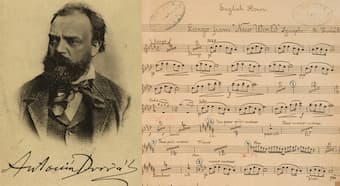
Dvořák’s New World Symphony
Antonin Dvořák was world-famous when he got invited to spend time in the United States to establish a unique American school of classical music composition. Dvořák quickly went to work and established the National Conservatory of Music of America and the American Opera Company. During the summer months, the composer spent his holiday with a Czech immigrant community in Iowa, and he completed a symphony that is closely associated with his visit in the United States. His Symphony “From the New World” does not actually use indigenous melodies but as the composer explained “I have simply written original themes embodying the peculiarities of the “native American” music, and, using these themes as subjects, have developed them with all the resources of modern rhythms, counterpoint, and orchestral color.” Without doubt, you do want to listen to this incredible symphony.
Antonin Dvořák: Symphony No. 9 in E Minor, Op. 95, B. 178, “From the New World” (Baltimore Symphony Orchestra; Marin Alsop, cond.)
Mahler: Symphony No. 1

Gustav Mahler and Sigmund Freud
Gustav Mahler was the last in a long line of Viennese composers writing symphonies. He was a deeply spiritual and highly neurotic individual. Mahler suffered the death of his daughter Maria Anna, and following a diagnosis of heart disease he withdrew into a world of morbid visions and deep trauma. And then he found out that his wife Alma was having an affair with a young architect. Ill with depression and guilt, Mahler sought professional help from Sigmund Freud. Apparently, he told Freud that as a young boy, Mahler witnessed a particularly violent quarrel between his parents, and when he ran into the streets he heard a barrel organ intoning a popular street song. Mahler was never able to shake off this juxtaposition of the sad and ironic, and it always shows up in his music. For me personally, his Symphony No. 1 takes the listener on a path of self-discovery, and it points the way towards music of modern times. It is one symphony that you definitely should hear at least once in your lifetime.
Prokofiev: Symphony No. 1 “Classical Symphony”
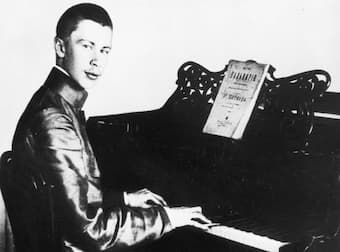
Sergei Prokofiev, 1930
The symphonies of Bruckner and Mahler are often thorny and rather lengthy affairs. Sometimes they are so personal and emotional that it’s difficult to find your breath. The Russian composer Sergei Prokofiev decided to compose the complete opposite. His Symphony No. 1 would be short and playful, and he would reboot traditional classical forms with modern harmonies, swinging rhythms and orchestral colors. The result was his “Classical Symphony,” a composition that uses a modern musical language but in connection with typical gestures from the time of Mozart. Prokofiev wrote, “When our classically inclined musicians and professors hear this symphony, they will be bound to scream in protest.” Maybe they did, but the public was very happy to hear uncomplicated music with a great sense of humour. It is one of the composer’s most popular works, and it concludes our selection of symphonies you don’t want to miss in your life. There are literally hundreds of additional symphonies on offer, and these featured great masterworks are only a start. Score one for the team, and please let us know what other symphonies could, and should be part of this list.
For more of the best in classical music, sign up to our E-Newsletter

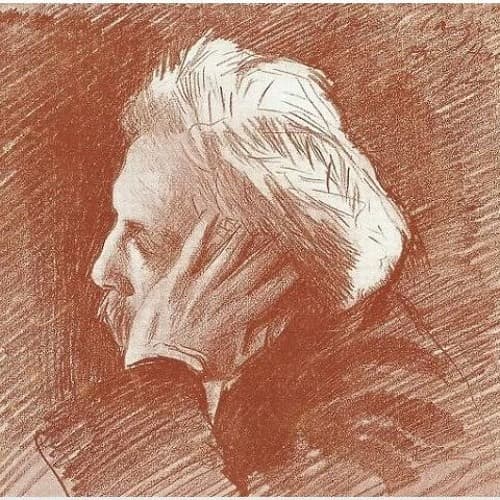
Berlioz symphony fantastique not on this list
It is a shame…..his original voice should not be missed.
Ten symphonies is barely enough to get your toes wet. But if someone needs a place to start, it might be useful. I agree that the Beethoven 9th is absolutely essential. The Prokofiev 5th is vastly more significant than the first. The Schubert 9th likewise over the Unfinished. The Mendelssohn Scottish to me is a good deal richer than the Italian. And as much as I like Haydn, I would have to favor a Bruckner, Sibelius, or Shostakovich Symphony over any one Haydn. For starters, Bruckner 4th, Sibelius 1st, or Shost. 5th, being the most accessible for a new listener. I know that’s more than ten, but it’s still a really tiny, irreducible number. I would shoot for twenty to get started instead.
Agree
Mahler 6th last mvt. Truly a masterpiece for all time. The whole range of human emotion directed and organized in the most artistic fashion.
The list is strictly subjective, based on the writer’s own feelings. Your list is as good as any other’s.
Actually this list is pretty ridiculous. Many of the great standards he lists are fine but it would take me hours to think about pieces that should be added. I was also a professional oboist for 43 years and after playing all of the works he lists he left out the one piece of American music that is timeless in Sam barber’s adagio for strings. Never gets old and if life exists in a hundred years it will still be timeless.